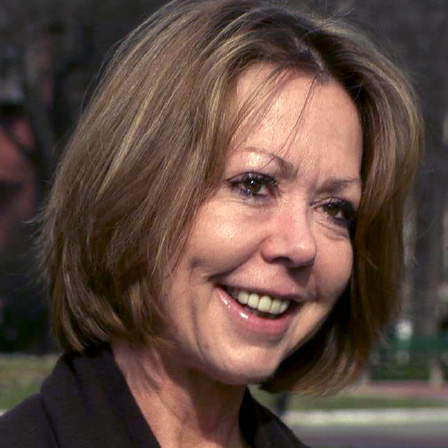 It’s hard to believe that I have been working either as a prosecutor or with prosecutors for more than 25 years. While it can be very difficult work, I have always been drawn to work that helps make a difference in people’s lives.
It’s hard to believe that I have been working either as a prosecutor or with prosecutors for more than 25 years. While it can be very difficult work, I have always been drawn to work that helps make a difference in people’s lives.
For many years I served as an assistant district attorney in Manhattan, where I dealt with some horrific and unimaginable crimes. As deputy bureau chief of the Family Violence Unit, I spent three years overseeing prosecutions of child abuse and neglect cases, and many of those children will forever be in my heart.
When I began working on juvenile cases in 2006, I knew that I had a lot to learn since I had never worked in juvenile court. However, I knew that my experiences working on child abuse and neglect cases, coupled with the cases I had handled in adult court with young offenders, would provide a firm foundation.
Nine years ago I never dreamed that my career would become so focused on young offenders and that I would be working as the project director of the newly created National Juvenile Justice Prosecution Center at Georgetown University.
As part of the Department of Justice’s Smart on Juvenile Justice Initiative, the Center will work to improve the quality of juvenile prosecution nationwide. The Center will partner with the National District Attorneys Association (NDAA), the National Association of Prosecutor Coordinators and Aequitas to improve the quality of juvenile prosecution through development of curriculum and standards, along with comprehensive training programs and technical assistance for juvenile prosecutors on a variety of topics, including the latest developments in forensic science, adolescent development, the neurosciences and sexual assault cases.
From the start, I believed that the juvenile justice system held the promise of being a court of opportunity. Too often, young people enter the juvenile justice system with a history of abuse and neglect issues. Entry into juvenile justice often marks the trajectory of their future. Instead of serving as a jumping-off point into the criminal justice system, I’ve always viewed the juvenile justice system as a chance to turn lives around and get young people back on track.
In 2008 I was afforded the opportunity to work with the MacArthur Foundation’s Models for Change Juvenile Justice Reform Initiative. My position was to represent the voice of prosecutors as well as trying to get prosecutorial support for MFC within the prosecution field.
I have to admit that initially I was nervous. Leaving my comfort zone of working almost exclusively with prosecutors and entering the world of reform was a bit unnerving. While I was not sure how it would go, I knew that Models for Change was making an impact across the country and that the voice of prosecutors needed to be included in the conversation.
I was relieved to find that there so many issues that I agreed with the reform advocates on. First and foremost was the fact that most young offenders are not on the path to serious and violent offending. Having been a teenager once myself, I am often saying “but for the grace of God” when I hear of some of the cases that are processed in the juvenile system. For six years I have had the opportunity to help prosecutors and other juvenile justice front-line staff understand the importance of recognizing that being “smart on crime” is not being “soft on crime.”
During my years with Models for Change, I had the chance to work with some of the greatest leaders in the field of juvenile justice. I consider them not only colleagues now, but friends. And while we might differ philosophically on what to do with some offenders, I am in awe of the passion and devotion they have for this work. I have come to realize that we are all in this because we want to make a difference in young people’s lives.
While my work was a wonderful experience, I always knew that juvenile prosecutors needed their own resource center. The closing of NDAA’s juvenile justice center in 2007 created a significant void in the field, especially since it came at a time of advances in the field with regard to adolescent development.
Fortunately, the federal Office of Juvenile Justice and Delinquency Prevention (OJJDP) recognized this void and through its Right on Crime Initiative has created a National Juvenile Justice Prosecution Center. The support from OJJDP reflects the fact that juvenile court prosecutors play a key role in ensuring an effective and fair juvenile justice system.
As the gatekeeper to the juvenile justice system, prosecutors must be trained on all aspects of adolescent development, prevention, early intervention and evidence-based practices. Prosecutors must work to hold youth accountable, promote public safety and collaborate with other youth-serving professionals agencies to enhance the competency of youth.
We now know more than ever about what works with young offenders and what doesn’t. Research and practice have revealed the importance of alternatives to formal processing for low-risk offenders. We know that childhood trauma can have an enormous impact of youth and we are finally addressing this through the policies and practices that have been proven to work.
One of the most important strides in the field has been surrounding adolescent development, especially with regard to the adolescent brain. We now know the importance of brain plasticity and recognize that adolescence can be viewed as a period of tremendous opportunity. The juvenile justice system can play a critical role in influencing young people’s lives for the better.
I am excited about the opportunity to bring the latest research and practices to those out on the front lines. Juvenile prosecutors have one of the most important positions in a DA’s office. They make decisions on a daily basis that can truly turn lives around. Yet they are often overworked and underappreciated. The work of the NJJPC is not only going to help those on the front lines, but also have a huge impact on the young people they work with.
Susan Broderick is project director of Georgetown University’s National Juvenile Justice Prosecution Center.

Nice essay, Susan. Working with a smart, compassionate, and diligent prosecutor is truly wonderful. During my few years working as a child welfare social worker years ago in Oregon, I was fortunate enough to be introduced to courtroom work and trained in giving testimony by a great prosecutor, Keith Meisenheimer. Despite my (many) disagreements with national prosecutors organizations over the years, I’ve always remembered those years and it has helped me retain some sense of balance. I hope your work at Georgetown results in even more good prosecutors.